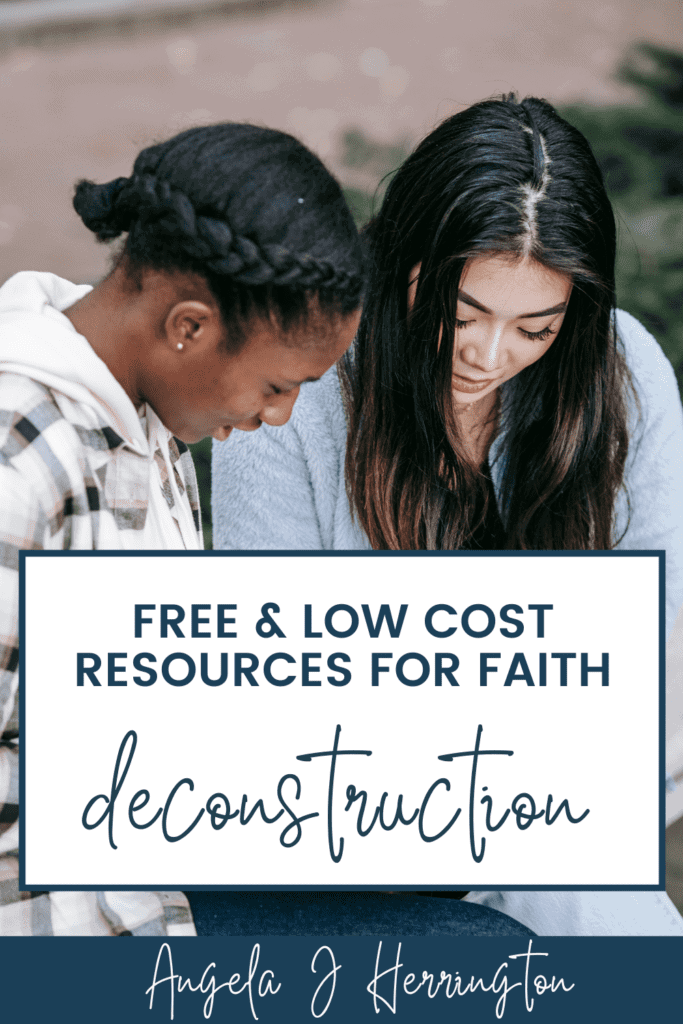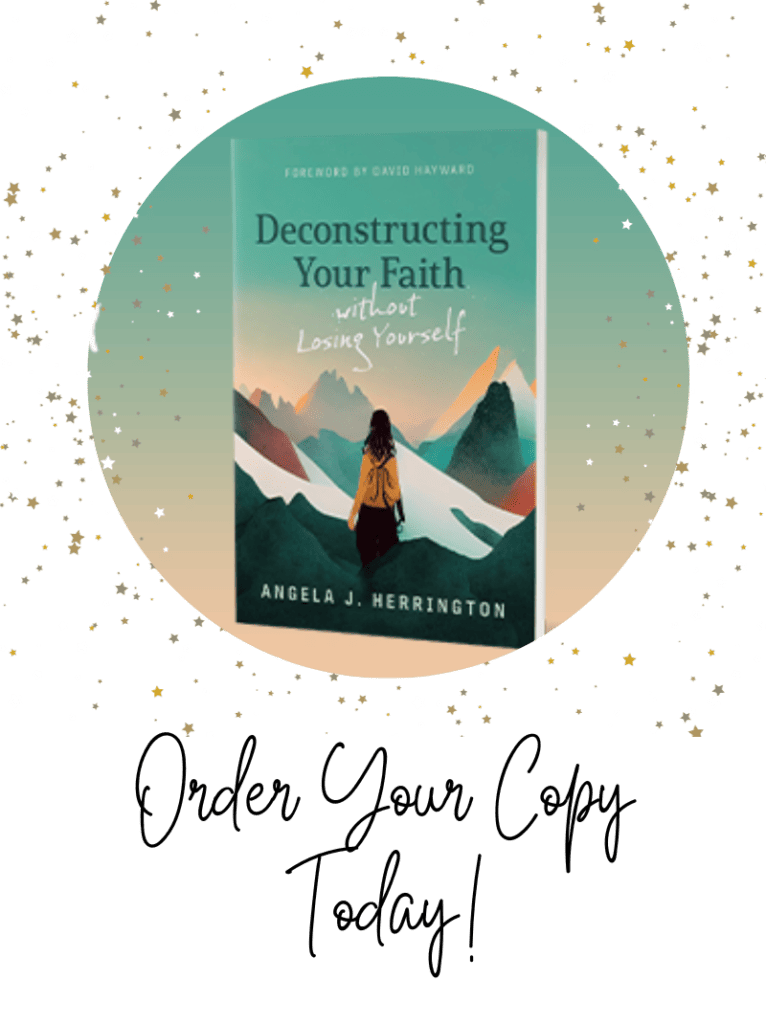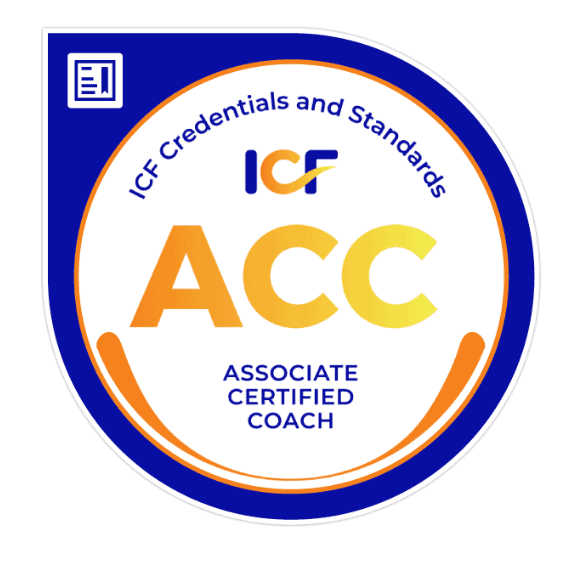Deconstructing your faith can seem like an overwhelming process to jump into, especially if you’ve spent much of your life embedded in Christian communities and toxic religion, or even near toxic religious culture. There are a LOT of questions to ask and many answers for each question. Often, when you begin questioning your faith, you aren’t sure where to start. As a faith deconstruction coach, I’ve spent hours listening to clients sift through their changing beliefs as well as experiencing my own evolving faith journey, and I’ve written some very helpful guides and resources for you.
Articles to read as you begin deconstructing
from toxic religion or toxic religious culture:
What is Deconstructing Faith?
Deconstructing faith is not a heretical, self-centered process like toxic patriarchal leaders might have you believe. It’s really a journey in sanctification that focuses on basing your faith in God’s truth instead of man-made, unbiblical traditions.
Is Deconstructing Your Faith Biblical?
Because of the patriarchal and toxic backlash they receive, many women find themselves wondering if deconstructing their faith is biblical. (Spoiler alert: It totally is.) No matter the opinions of church leaders, the Bible actually supports a deconstructing faith journey.
Sometimes You Have to Leave the Church to Find God
Staying committed to calling out the practices, traditions, and leadership of toxic religion is EXHAUSTING. The work is good (and necessary), but the potential for burnout is real.
Not only that, but healing from trauma and abuse is really difficult when you stay in the environment of toxic religious culture where the abuse occurred. So if you’re feeling the weight of this in your church, leaving may be the best way for you to recover and end up closer to God in the long run.
Does Deconstruction Move You Toward Jesus or Away?
One of the biggest misconceptions I see about deconstructing is that it is a self-centered movement that leads people away from God. This always surprises me because most deconstructors I meet are tired of the church but actually want more of Jesus. Most are looking for a way to distance themselves from the church and toxic religion while remaining connected to God.
Deconstructing Your Faith Without Losing Friends and Family
I’m often asked about how to protect your relationships with friends and family while deconstructing. Will they understand why you’re asking hard questions? And if they don’t, or won’t, will they push you away? Whew. The prospect of losing those people who are closest to us is scary. Setting healthy boundaries with people you love will be vital to deconstructing your faith.
30 Signs Your Church is Toxic
Deconstructing toxic religious culture is often confusing, especially in the beginning as you try to discern whether your church is healthy. When it comes to your faith, the last thing you want is to feel like you’re suffocating under the weight of legalism or fighting off racism, misogyny, and hate. But when you’re deeply embedded in the community, it can be challenging to see the warning signs.
How to Handle Online Bullies While Deconstructing Your Faith
If you’re challenging toxic religion, there’s a high chance that you’re going to run into some opposition. When you become more vocal about what you’re learning while deconstructing toxic religious culture, those who disagree with you are like moths to a flame. They attack and berate you for your questions and doubts about toxic beliefs that perpetuate harm. It’s easier to shake off the attacks from strangers, but it is very hurtful when the source is someone you care about.
Books to Help You Deconstruct:
You Can Talk to God Like That by Abby Norman
Deconstructing your faith requires a LOT of work to start letting your emotions flow again. If like most of us, no one ever taught you how to do it in a healthy way, it can be terrifying to just open the floodgates and see what comes out. Lament is ALWAYS part of untangling ourselves from toxic religion and patriarchal systems and You Can Talk to God Like That will help you let all that grief out without self-destructing.
Women Rising by Meghan Tschanz
Patriarchy and toxic religious culture oppress women and their voices in order to claim and maintain power. But the key to achieving justice and equity lies in women using their voices–and the Church listening. Women Rising by Meghan Tschanz focuses on stories of women around the world, and why feminine voices are needed for justice.
I’m Still Here by Austin Channing Brown
We can’t experience true freedom in the church if white people like us choose to rest in our privilege and turn away from the trauma racism inflicts on people of color. In I’m Still Here: Black Dignity in a World Made for Whiteness, Austin Channing Brown shares the story of her life growing up as an African American woman surrounded by white people, white culture, and white expectations.
Holy Hot Mess by Mary Katherine Backstrom
Holy Hot Mess is about embracing your everyday life─even those moments when things don’t go according to plan or when it feels like everything is falling apart. Mary Katherine Backstrom shares hilariously relatable stories about faith, friendship, motherhood, marriage, and living with bipolar disorder.




Angela is a Faith Deconstruction Coach and host of The Deconstructing Faith Summit who helps people break free from toxic religious culture & empowers them to recover from #churchhurt. She has led online ministries for a decade, enjoys working with clients 1:1, in groups, and is a dynamic conference speaker. She’s a Lark’s Song Certified Life Coach who reaches thousands of people in 40+ countries each month on Facebook, IG, Twitter, Pinterest, and her blog.
She’s a firstborn, Enneagram 8, Gen Xer who loves to question everything. She holds a BA from Indiana Wesleyan and a Masters in Leadership from Wesley Seminary. Her graduate research project focused on leadership development and opportunities for Gen X women in the US church.
Angela and her unique online ministry are featured in Lyz Lenz’s 2019 book God Land: Story of Faith, Loss, and Renewal in Middle America. She has published articles in Hope for Women and HOPE is Now magazines. She has been featured in The New Republic, Publisher’s Today, and Religion News Service.
Her first book, Deconstructing Your Faith Without Losing Yourself, Will be published by Eerdmans in February 2023.
Angela is also a wife, mom to 5, and a proud resident of Marion, Indiana with her family when they’re not traveling the US in their RV.





